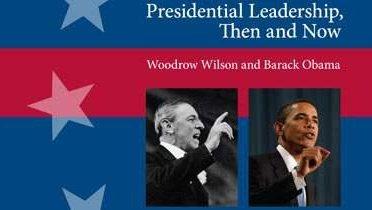Abstract
Every presidency develops a leadership style, which has bearing on presidential
accomplishments. Historical comparisons shed light on the matter.
The following paper compares Barack Obama and Woodrow Wilson in their
respective early years.
The narratives of these two presidents share certain
elements. Both men were progressive agents
of change, who would try to adjust the balance of
public and private power in society. Both men took
office following back-to-back wave elections, resulting
in clear Democratic congressional majorities.
Both compiled impressive legislative scorecards.
(In the rear-view mirror of history, Wilson’s legacy,
which included achievements like establishing the
Federal Reserve, would acquire indisputable legendary
status.) Each president faced an economic
crisis while pursuing his agenda.
For all the parallels, however, key contrasts stand out.
President Wilson had more wind at his back since,
albeit within important limits, the political climate
was more receptive to reform during the Progressive
era, and he confronted a less-solid opposition party in
Congress. Also, parliamentary rules differed a century
ago. Filibustering in the Senate was not the same as it
is today. The electoral campaigns of the two presidents
differed. And, Wilson was far more predisposed to
govern through his party’s legislative majority, rather
than bet on bipartisan agreements, and he managed
relations with the legislature differently.
There may be lessons here. For instance, could it
be that Wilsonian “party government”—however
difficult in contemporary politics—still offers a
serviceable model during periods of unified party
control of the executive and legislative branches,
one that at times befits the reality of today’s political
polarization more than does a frustrating quest
for post-partisanship?
A caveat: This essay does not purport to offer
more than a partial, and tentative, comparative
assessment. The bookends of Woodrow Wilson’s
presidency have been in place for nearly a century,
whereas Obama’s record remains very much
a work in progress. Observations drawn at the
mid-point of a president’s first term can be suggestive,
but their limitations are evident. Much
of what is observed now may well be overtaken
by events. This paper only focuses on domestic
issues, not the conduct of foreign policy. As we
know, in Wilson’s case international setbacks were
ultimately a principal source of his undoing. We
have yet to see how world affairs will inform the
rest of the Obama years.




